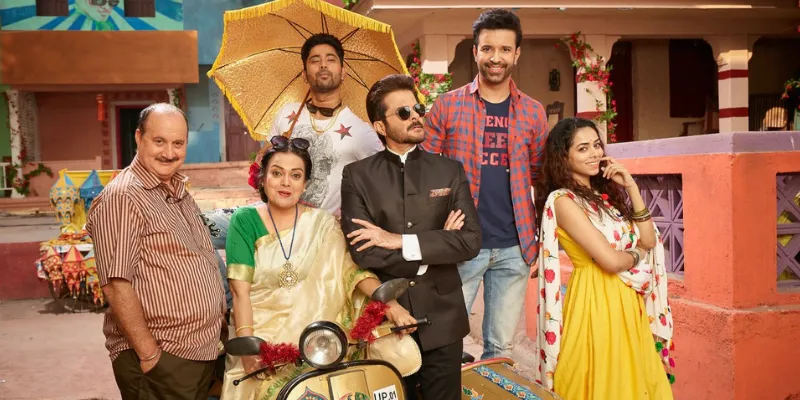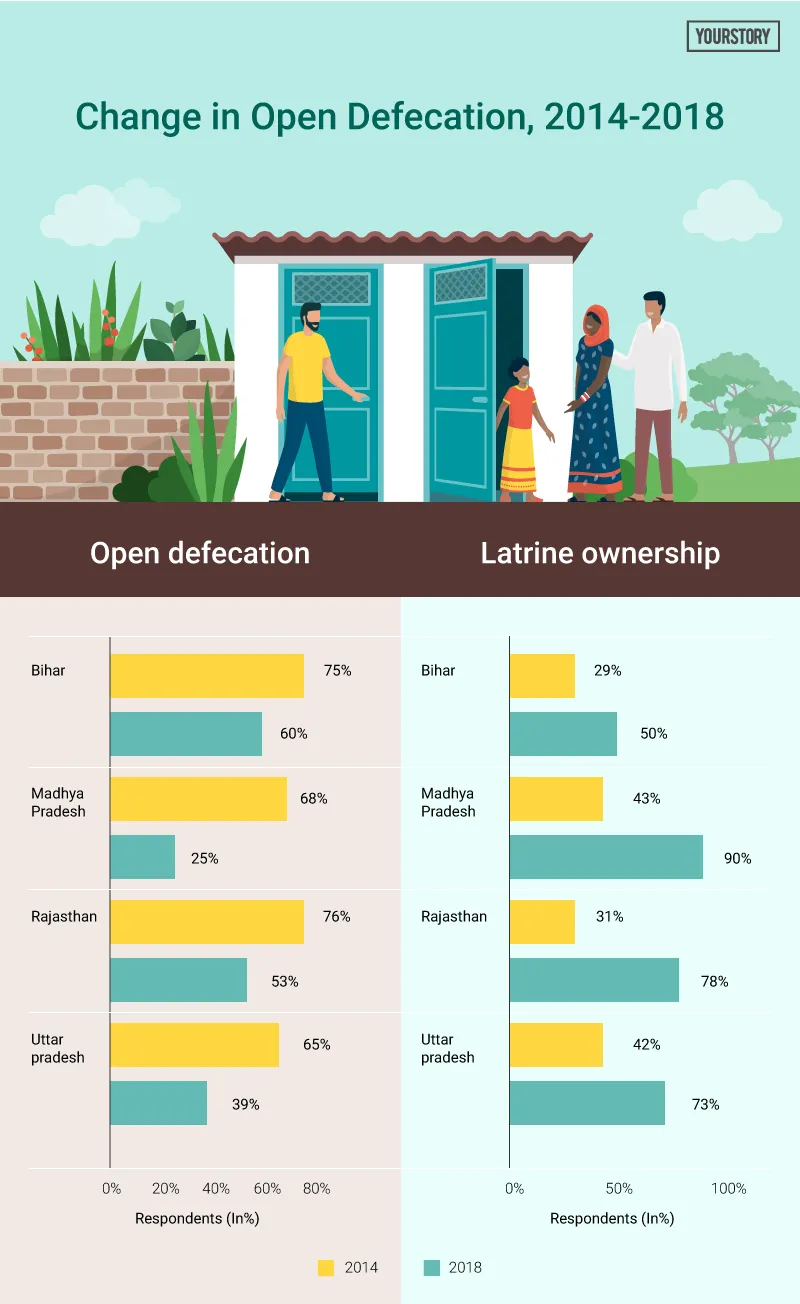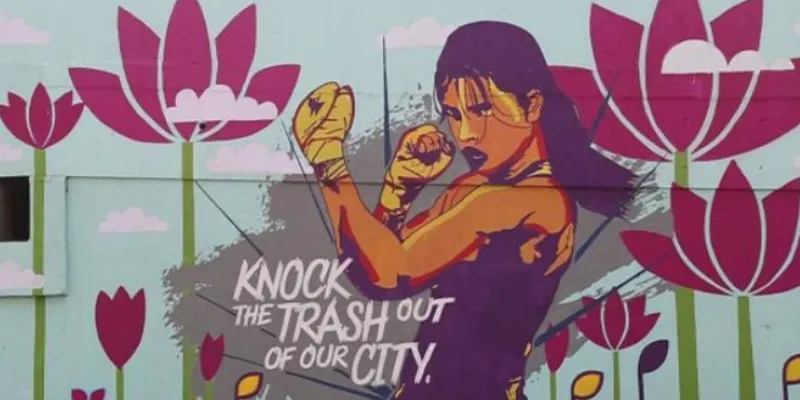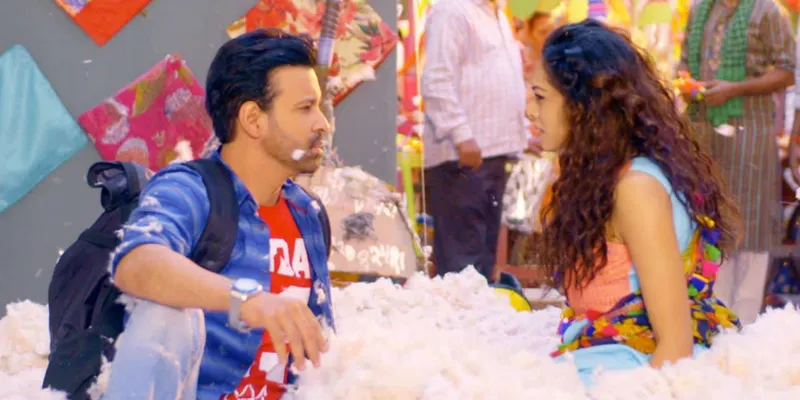Swacch Bharat: TV show by the Gates Foundation, BBC, and Viacom explores the ‘flush ke baad ki kahaani’
Most of the time, we don’t #GiveAShit about shit. However, Navrangi Re!, a limited teleseries, wants to change this by mixing drama, wit, and satire with urban sanitation.
Thanks to Swacch Bharat, toilets and even open defecation are openly discussed today. But have you stopped to think, what happens to our poop after we flush?
Exploring this story of ‘flush ke baad ki kahaani’ through is teleseries Navrangi Re! - a joint venture by Bill and Melinda Gates Foundation, BBC Media Action, and Viacom18. The show combines drama, wit, and satire with development issues. It wants to bring about behavioural changes in viewers and create awareness about the need and importance of ‘faecal sludge management (FSM) and treatment’ - what happens after flushing.

Radharani Mitra, Global Creative Advisor of BBC Media Action, says:
“People don’t know about faecal sludge and they simply don’t care! Navrangi Re! is about making this invisible risk visible. The series raises critical questions around ‘flush ke baad’ and models solutions using the power of the narrative.”
Navrangi Re! is the story of India - a country where the number of mobile phones far exceed that of toilets, where tarakki (success) gets caught between age-old customs and new aspirations, and where jugaad can jeopardise a community. This is also the story of apathy giving way to action, and a story of hope and optimism.
Veteran Bollywood actor Anil Kapoor, who has a cameo on the show, tells YourStory,
“I used to visit Raj Kapoor uncle as a kid and he used to say something that I strongly believe in...that if we can offer entertainment with a social message, the cause and awareness on the issue reaches out a number of people. In this show, we have attempted to do just that. Swacch Bharat Abhiyan is very close to my heart and I believe every small step brings change.”
The 26-episode limited series is aired bi-weekly on Viacom18 network’s Hindi General Entertainment Channel Rishtey as well as on Colors Gujarati and Colors Odia.
Why India needs this?

Source: Changes in open defecation in rural north India: 2014 - 2018
Even when people use a toilet, more than 57 percent of waste is not contained, transported, or treated safely. Data indicates that 70 percent of urban India’s sewage is left untreated, flowing into the rivers and seas, posing a health risk to the population. With the country’s population set to increase by over 20 percent by 2030, it is very important to address this issue of safe treatment of sewage.
At present, the clearing, treatment, disposal, and conveyance of faecal sludge in India is left to private service providers. Several cities like Hyderabad, Bhilai, and Indore, have adopted different approaches to promote treatment of faecal sludge management. As of early 2018, 11 states and union territories (UTs) have been declared open defecation free under the Swacch Bharat Mission. However, faecal sludge management continues to be a challenge due to low awareness among the general public.
In fact, at the India Sanitation Conclave 2018, Naina Lal Kidwai, Head - India Sanitation Coalition, described the current urban sanitation story “as a disaster”, with Delhi barely treating 50 percent of its excreta. Many toilets are not connected to a septic tank at all, and only one-third of urban houses in India are connected to the sewer system.
It was only in 2017 that India passed its first policy on faecal sludge and septage management that looks at safe storage, collection, transport, and treatment of human waste. Subsequently, states began adopting the policy, allocating resources, and issuing guidelines that would allow for waste treatment.
Also read: How to bring about long-lasting community transformation in rural India
Infotainment - a way forward
Sonia Huria, Head of Corporate Marketing, Communications, and Sustainability at Viacom18, says:
“When it comes to creating social messaging content, we realised viewers connect better with social messaging when it is combined with an interesting and entertaining narrative.”
The key theme of Navrangi Re! is to create awareness around faecal sludge management through entertainment that is crucial “to keep Bharat swacch.” Its USP is in communicating technical information into entertainment while addressing the issues of sanitation.

A 'Chakachak Mumbai' initiative
Earlier, Viacom 18 had worked on a sustainability project ‘Chakachak Mumbai,’ that built toilets where they used ‘art for behaviour change’ and spread the message against open urination and public littering. They also produced ‘Toilet: Ek Prem Katha’, a movie that chronicled the journey of a man to build a toilet for his wife. Another show Hum Saaf Saaf Hain focussed on rural audiences.
“India’s growth story has been stymied for years by lack of sanitation. With the use of comedy and satire, we expect the audience to effectively question themselves and others on their old practices, which are not only harming their own health but also that of their neighbours,” Sonia adds.
Content is ‘king’
The aim is to showcase the many challenges faced in a community due to the lack of proper sanitation facilities. ‘Navrangi Re!’ is the story of a congested mohalla (neighbourhood) in a small town in North India full of real, but quirky and endearing characters.
“There is no other show on television that addresses FSM – building septic tanks correctly, desludging them before they overflow, and correct disposal of faecal sludge – for urban TV-viewing audiences,” Radharani says.

A still form the show
While the show has a central character – a struggling TV journalist ‘Vishwas’ played by Aamir Ali, who is not able to deliver ‘breaking news’ stories and finds his job on the line – the show is centred around the Navrangi mohalla coming together to address sanitation.
“I hope people understand the meaning of faecal sludge management and the importance of septic tanks. That’s a good beginning in itself. Flush ke baad ki kahaani is very interesting, but it’s also something most of us are unaware of. I believe in the power of stories and this story has the potential to bring change,” Aamir concludes.
Time for potty training part 2, isn’t it?
Also read: Swachh Bharat: 5 citizen-driven initiatives that have brought India a step closer to cleanliness






